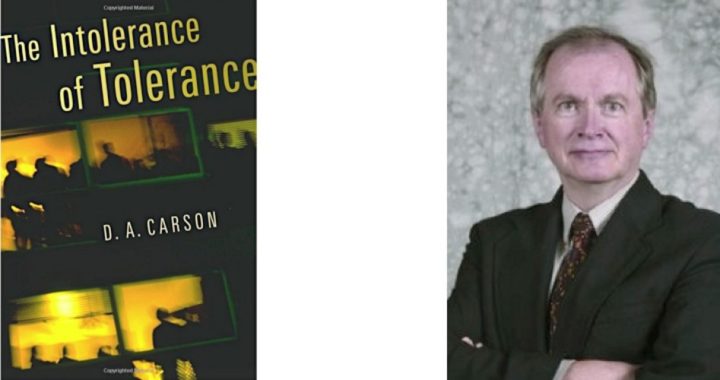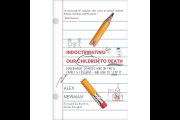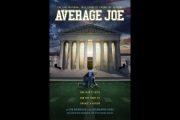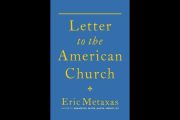
Amidst a plethora of books and articles bemoaning the ills and absurdity of various forms of post-modern political correctness, few stand out as having an enduring significance for understanding the roots of the current intolerant demands for tolerance. D. A. Carson’s new book, The Intolerance of Tolerance, is one of the rare exceptions, offering readers an opportunity to comprehend the origins of the self-contradictory credo which is attacking the heart of Western culture.
Carson begins with the acknowledgement that tolerance is viewed by an overwhelming majority of people in the West as a bedrock value. Being branded as “intolerant” means, functionally, that one must suffer exile from civilized discussion. However, at the heart of Carson’s argument is the recognition that there has been a change in the definition of the word “tolerance” which permits, even necessitates, the “intolerance of tolerance.”
As Carson observes, the present circumstances are rooted in a change in the meaning of the term “tolerance.” The third chapter of the book, “Jottings on the History of Tolerance,” offers a serviceable introduction to this shift in meaning. Carson uses the phraseology of Edward Langerak to describe the “older tolerance”:
Toleration is the enduring of something disagreeable. Thus it is not indifference toward things that do not matter and it is not broad-minded celebration of differences. It involves a decision to forgo using powers of coercion, so it is not merely resignation at the inevitability of the disagreeable, although begrudging toleration can be granted when one believes that coercion, while possible, would come at too high a price. [48]
According to Carson, the “older view of tolerance makes three assumptions: (1) there is objective truth out there, and it is our duty to pursue that truth; (2) the various parties in a dispute think that they know what the truth of the matter is, even though they disagree sharply, each party thinking the other is wrong; (3) nevertheless they hold that the best chance of uncovering the truth of the matter, or the best chance of persuading most people with reason and not with coercion, is by the unhindered exchange of ideas, no matter how wrongheaded some of those ideas seem.” [12] The older tolerance is, as Carson notes, truly one of the key assumptions supporting modern Western notions of civil society. This older view of tolerance came with limits to what it tolerated:
The old tolerance, for instance, will happily allow, say, Islam to be preached in a Western country that is minimally Muslim. It may go so far as to allow militant Islam to be preached, even while it detests the message. But obviously it will not allow militant Muslims to blow up people and buildings: there will be repercussions, and the violence will not be tolerated. In due course, those who advocate such violent actions may also find their freedom to speak curtailed. [13–14]
The nature of the new tolerance is of a fundamentally different character from that of the older view:
Advocates of the new tolerance often find no more scalding epithet to hurl at those with whom they disagree than “intolerant” and related categories: bigoted, narrow-minded, ignorant, and so forth. Advocates of the old tolerance rarely charge their opponents with intolerance (although that is exactly what this book is doing!); rather, their epithets are shaped by their perception of the evil that cannot be tolerated (so defenders of euthanasia are committing murder, suicide bombers are terrorists, and so forth). [14–15]
In short, the older tolerance recognized that there were genuine differences of viewpoint that were under contention, which were mutually exclusive of one another, and which necessitated disagreement — while insisting that those who contended for different perspectives would permit opposing views to be expressed. The new tolerance insists in the moral equality of all positions, except for the belief that any point of view was wrong, immoral, etc.
Carson maintains that the older tolerance certainly worked well with an orthodox Christian understanding of the relationship between church and state. At the same time, he contends, any notion of tolerance is fundamentally incompatible with the tenets of Islam: “Discussion about the relationships between church and state becomes staggeringly more difficult when we abandon Christian assumptions and enter the world of Islam. Many have noted that Islam has no theological resources on which to draw so as to think freshly about the relationships between church and state. There is no utterance, for instance, akin to ‘Give back to Caesar’s what is Caesar’s and to God what is God’s’ (Mark 12:17).” [67]
A fundamental point which Carson emphasizes in The Intolerance of Tolerance is that the new tolerance is fundamentally incompatible with the truth claims of orthodox Christianity: “In the name of refusing to say that some positions are wrong, this tolerance becomes a synonym for ethical or religious neutrality.” [97] As Carson explains:
Neither the old tolerance nor the new is an intellectual position; rather, each is a social response. The old tolerance is the willingness to put up with, allow, or endure people and ideas with whom we disagree; in its purest form, the new tolerance is the social commitment to treat all ideas and people as equally right, save for those people who disagree with this view of tolerance. Advocates of the new tolerance sacrifice wisdom and principle in support of just one supreme good: upholding their view of tolerance. So those who uphold and practice the older tolerance, enmeshed as they inevitably are in some value system, are written off as intolerant. Thus banished, they no longer deserve a place at the table. [98]
If one believes and expresses Jesus’ words — “I am the Way, the Truth and the Life. No one comes to the Father except through Me” (John 14:6 NKJV) — and teaching that there is eternal salvation only through Christ Jesus, the new tolerance excommunicates such a believer from civil society. Carson notes that because the Christian faith is rooted in divine revelation it has a doctrinal content that “can be — indeed, has been — put into propositions, creeds, catechisms, statements of faith. It has substance.… There is substance in Christian confessionalism.” [111–112] Every such truth claim so expressed is fundamentally in opposition to the tenets of the new toleration. But, as Carson declares, the belief that truth objectively exists, catches up with everyone who believes that there is a fixed reality which must be acknowledge: “… this truth question catches up with all of us. And it affects our broadest visions of what we think is wrong with the world, and how to address it. All of us think in terms of (our own equivalents of) sin and redemption.” [121]
Ultimately, Carson believes that the struggle between such truth claims and the new tolerance leads to the “tolerant” persecuting those who believe in objective truth. The new tolerance can try to pretend that objective good and evil do not exist in the world, but such a denial of reality does not change reality:
Relativism regularly plays games with language, encourages doctrinal aberration, cultivates duplicity, and pretends to be humble while authorizing astonishing arrogance. Relativism promises freedom but enslaves people: it refuses to acknowledge sin and evil the way the Bible does, and therefore it never adequately confronts sin and evil, and therefore leaves people enslaved by sin and evil. Even on societal levels, it is an invitation to destruction, for if everyone does that which is right in their own eyes, the end is either anarchic chaos or cultural cries for more laws in order to establish stability — ultimately even a call for a dictator. [132–133]
In the face of such persecution, Carson calls on his fellow Christians to remain steadfast, and peacefully endure such persecution as will be inflicted on them.
D. A. Carson, The Intolerance of Tolerance, (William B. Eerdmans Publishing Company, Grand Rapids, 2012). 186 pages. Hardcover. $24.00
Photos: The Intolerance of Tolerance and D.A. Carson



